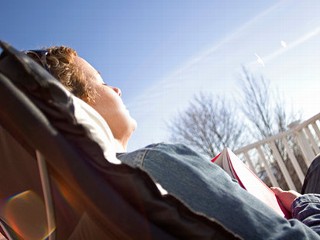Vitamin D May Help Patients Survive Cancer
New Report Suggests Sunshine Vitamin May Have Significant Cancer Benefits

When Joanna Fuchs was diagnosed with colon cancer last year, a blood test revealed she was severely deficient in vitamin D.
"I was obviously very concerned and very worried," Fuchs said.
So, too, was her husband, Dr. Charles Fuchs of the Dana Farber Cancer Institute, who is the senior author of a study published today that found colon cancer patients deficient in vitamin D were almost twice as likely to die over a 10-year period than patients with healthy levels of the nutrient.
"These findings make considerable sense," Dr. Fuchs said, "because in the laboratory we find that vitamin D reduces the growth of colon cancer cells, prevents its spread to other organs, and actually reduces the growth of blood vessels to these tumors."
Fuchs' work is just the latest in a wave of new studies on vitamin D. Vitamin D deficiency has been linked to a greater risk of autoimmune diseases, including type 1 diabetes, multiple sclerosis and rheumatoid arthritis. It has also been linked to a doubling of heart attack risk among men, a 73 percent greater risk of dying from breast cancer, and more frequent asthma attacks among children.
"Vitamin D seems to be very helpful in making your immune system do what it is supposed to do," Dr. Tanya Edwards, director of Integrative Medicine at the Cleveland Clinic.
The government recommends getting 200 to 600 international units of vitamin D a day. But those levels were set 11 years ago, primarily to keep bones healthy. To prevent other diseases, many researchers now say more is needed.
Alex's comment: I recommend 2000 IU's and if you have an autoimmune disease 5,000 Iu's. It is a cheap add on to a blood test and well worth getting checked out.








